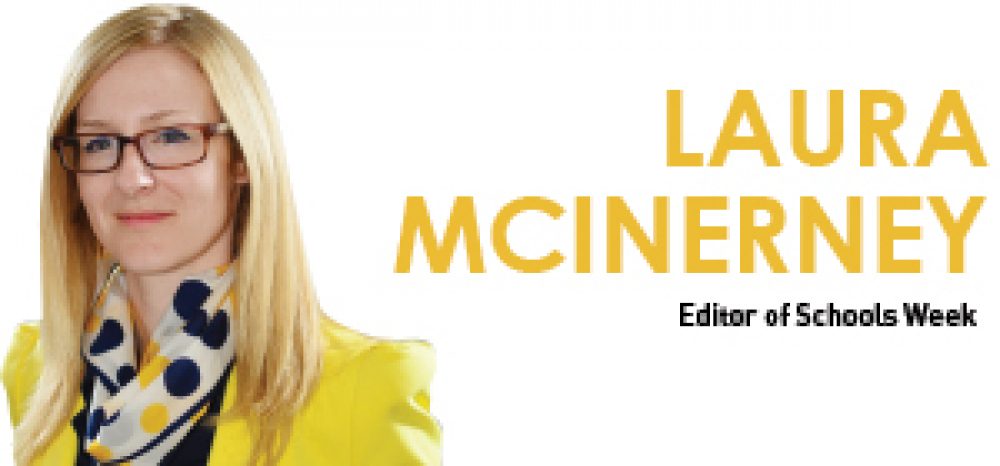Reports that schools minister Nick Gibb wants GCSEs and A levels to be provided by one exam board were greeted with a knowing smile from Michael Gove’s ex-advisor Sam Freedman:
The burnt finger wobbles back to the fire… https://t.co/SlPlK4bmig
— Sam Freedman (@Samfr) August 9, 2015
The burned fingers are his and his bosses. We have been here before.
You see: a single exam board sounds very sensible if you are new to the problem.
If you talk to teachers about exams for more than 20 minutes someone, inevitably, will tell you how such-and-such school down the road picked their exam specification on the basis of what was easiest for their kids. The teacher will then tell you they had to do the same (“I couldn’t disadvantage my kids”) or they will explain how they think it’s important not to sell out for high grades (“I’m a martyr to the cause”, etc).
Either way, if you’re a minister it’s very easy to believe that if exam boards are going around offering obviously easier exams for the purpose of drumming up business, then we are all in a doomed race to the bottom.
“We must have one exam board!” comes the cry from the minister, all pleased with themselves that they’ve solved the problem of dumbing down.
Only, they haven’t. And what having one exam board will actually do is massively increase risk.
Here’s why.
Nick Gibb is apparently angry that OCR last year nearly didn’t meet its deadline for exam marking. They did meet it, in the end. But let’s imagine they didn’t. What would have happened?
OCR are one of three large exam boards for GCSE and A levels. (WJEC is much smaller). The quantities differ per subject but, for ease, let’s imagine they deliver one in three of these qualifications and they do so with rough uniformity across the population. If they had stuffed up then most students would have had one affected A level, or three missing GCSEs. This is a problem but it’s not total devastation.
Let’s re-run that scenario again: this time with a single government-run exam body.
If something goes wrong – and, on occasion, stuff will go wrong with exams – what situation are we in? Now, we have no A level results and no GCSEs. That is not a better state of affairs.
If OCR (or any exam board) screws up, it is possible to penalise them and say that, in the future, they can’t run an exam for a couple of years until they get it sorted. This can be done almost instantly with other exam boards able to take up the slack.
What happens in our single government body scenario if everything has melted into chaos? NOTHING. Because there isn’t anyone else to step in. There is just a massive exam body black hole.
One exam body still solves the problem of dumbing down though, right?
Still wrong. There is already a qualifications regulator, Ofqual, who have been working intensely on the issue since 2010. And they’ve already changed a bunch of things to limit the ‘race to the bottom’ problem, including requiring exam boards to submit question papers in advance for moderation and making exam boards rewrite example exam papers used for marketing purposes.
The problem of ‘dumbing down’ is already in hand. Pratting about with exam boards to resolve it is unnecessary.
If an argument must be made for returning to a single exam body it would be smarter to do so on the basis that exam fragmentation means 16 year olds do not learn the same things. The historical periods studied by a 16/18 year old for one exam board will be different to those learned by a child studying for a different one. Same for English texts, religious concepts, drama techniques. All of which means A level teachers and university lecturers cannot presume uniform knowledge which is a pain when planning curriculum. There’s also the problem of not being able to share resources across school because of fragmentation, and the difficulty of kids moving schools (and therefore exam boards) halfway through their exam years.
Unfortunately, it would be rather odd for a government that pushed curriculum freedom so heavily for the past five years to now decide it wants everyone to learn the same things. It might even be tantamount to a u-turn. But at least it would make sense – unlike the plan as currently articulated.






Look at the ks2 SATs fiasco in 2008. SATs were effectively a single examboard run by a Goverment ‘arms length’ agency (QCA). They contracted out marking to EPS who managed to lose papers by the thousand and even those that ultimately got marks were very late – months late in some cases – after students had already started secondary school.
Of course that was just papers for 3 subjects (maths, English, sci) – throw Geog, History, Eng Lit, French etc. etc. into the mix for GCSEs and A levels and the numbers of papers would easily at least quadruple each year compared to what they had to co-ordinate in 2008.
Imagine the chaos that would ensue if thousands of GCSE and A level papers were lost and those others didn’t get results until the next school/University year had started! Yikes!